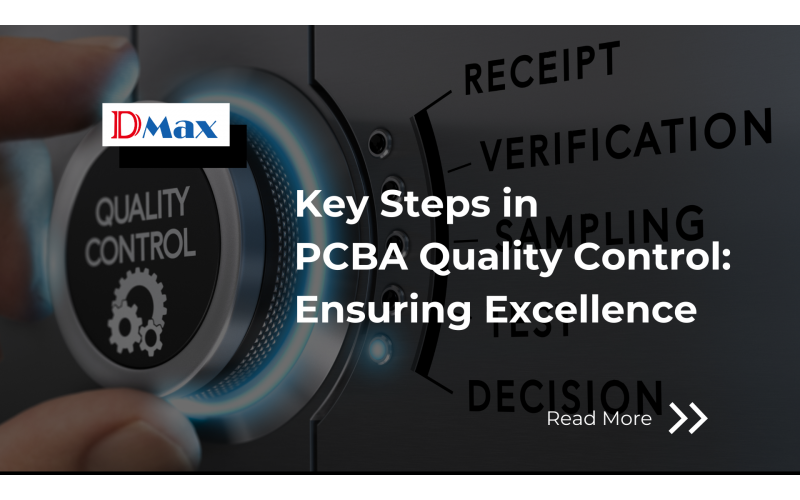1. Incoming Component Inspection
The first step in any successful PCBA process flow is inspecting the incoming components. This phase ensures that every component, whether sourced for custom PCBA manufacturing or prototyping PCBA, meets the required specifications. We rigorously check all parts for defects or inconsistencies to avoid issues later in the production process. In addition, we emphasize PCBA component sourcing from trusted suppliers to ensure the highest-quality materials for your assemblies.
2. Visual and Automated Inspection
After assembly, visual inspection is crucial in checking for common issues such as misplacement of components or visible defects. We use advanced tools like automated optical inspection (AOI) to inspect the quality of each PCB assembly. These checks are particularly important for mass PCBA production, where speed and precision are key. For complex assemblies like BGA assembly or multi-layer boards, we also rely on X-ray inspection to detect hidden defects, ensuring every board is up to standard.
3. Soldering Inspection: SMT and Through-Hole Assembly
Soldering is the heart of the PCBA assembly process. Whether your project involves SMT assembly or through-hole assembly, the quality of each solder joint must be flawless. We use advanced techniques such as visual inspection and X-ray inspection to ensure proper soldering. Proper soldering guarantees the longevity and functionality of the board, which is especially important in industries like medical PCBA, automotive PCBA, and IoT PCBA, where reliability is non-negotiable.
4. Functional Testing: Ensuring Proper Operation
Once the assembly process is complete, functional testing becomes the next critical step. For every PCBA we produce, whether it’s prototype PCBA or a large-scale order, we ensure that each board functions as expected. Using In-Circuit Testing (ICT) and functional testing, we verify that all the electrical components are working and that the board performs under real-world conditions. This is especially important for global PCBA product testing, where compliance with international standards is necessary.
5. Environmental and Stress Testing
For custom PCBA manufacturing or products destined for demanding environments, stress and environmental testing are essential. This includes testing under extreme temperatures, humidity, and vibrations, which ensures the durability of PCBA assemblies in applications such as smart device PCBA, IoT PCBA, and other consumer electronics. Cross-border PCBA product testing helps to meet the standards of international markets, ensuring that products can withstand varying environmental conditions.
6. Final Inspection and Packaging
Before shipping out any product, a final inspection is done to ensure it meets all PCBA export testing & control regulations. This includes checking for visible defects, verifying component placement, and ensuring that every PCBA has passed all tests. Once verified, the product is carefully packaged for delivery, ensuring that it arrives safely for global PCBA trade compliance and meets the expectations of international clients.
Why Choose DMax for Your PCBA Manufacturing?
At DMax, we specialize in turnkey PCBA manufacturing, offering comprehensive support from design to finished product. Our expertise spans PCBA OEM/ODM services, end-to-end PCBA manufacturing, and contract PCBA manufacturing for businesses of all sizes. Whether you're looking for low-volume PCB assembly for prototypes or high-volume PCB assembly for large orders, we provide exceptional support throughout the process.
Our approach includes global PCBA material sourcing, cross-border PCBA supply chain collaboration, and PCBA manufacturing support that helps ensure your product meets the highest standards and complies with international market requirements. With our focus on global PCBA assembly demand and international PCBA component distribution, you can be confident that your products will be assembled and tested to the highest standards.

